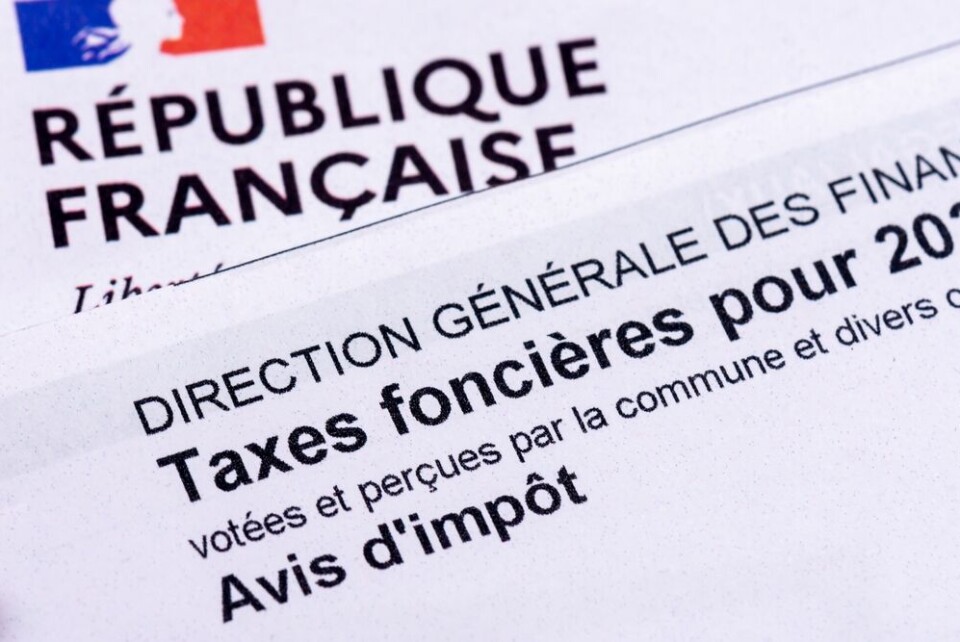-
Senator bids to ban new second homes in several areas - how would it work?
‘These areas are out of control’ says the deputy mayor of Paris in charge of housing who is supporting the idea
-
A million people in France received tax refunds after issues with new property declaration
The problem caused a €1.3 billion overpayment in property taxes with for the tax year 2023
-
Thousands of property owners in France sent ‘empty home tax’ bills in error
The bills, payable this December, can run to thousands of euros
Was your French taxe foncière bill high this year? Check for a refund
The French government has ringfenced €1.37billion to repay property owners for errors or special cases

Property owners will have paid all or most of their taxe foncière for 2023 by now – but if your bill seemed surprisingly high, you should check, as many errors are expected.
Retired teacher Joy King, 86, from Bordeaux, told us an online Connexion article on this tax prompted her to write to her tax office.
“My bill was nearly triple last time but I had sent off my cheque as requested. I am anxiously awaiting a reply.”
She has lived in the city, which raised its tax rate by 2.4% this year, for more than 10 years and her circumstances have not changed.
She said a local friend has now had her bill reduced after visiting the tax office.
“They thought she had a mansion with lots of rooms, which isn’t the case. It seems they had looked at the wrong file.”

Photo: Retired teacher Joy King, 86, from Bordeaux has paid her bill but has also queried why it had tripled; Credit: Homycat
Government expecting refunds
If in doubt, it is important to take the initiative.
You can write – preferably with evidence of the error – to the address on your local tax bills, or use messaging in your personal space at impots.gouv.fr
Errors are not rare: for 2023, the government budgeted to have to repay €1.37billion after requests from the public, though part of this was for recours gracieux, where people plead special circumstances and ask to be let off some tax.
This year, €600million was earmarked to repay owners billed for tax that was owed by someone else, due to land registry delays in registering changes of ownership after property sales.
The government based the amount on similar sums paid back in recent years.
An MP’s report said delays increased during the pandemic and had not returned to normal.
Read more: Refunds due as €600m of French property tax ‘billed to wrong people'
Check very high bills and eligibility for exemptions
Compare the bill to last year’s. If it seems very high, try to work out why.
The amount of the full bill and details of what remained payable after any instalments already paid, is shown on the first page and the calculations on the second.
The base refers to half of the annual theoretical rental value assigned to the property.
If your bill rose moderately, it may be due to a 7.1% rise applied to all of these based on consumer price index rises in 2022. A rise of about 4% is due next year.
Councils can also vote to raise percentage rates that are applied to this and to related taxes such as for rubbish collection.
Exemptions linked to age, disability and means can also apply – our article explains more.
In larger towns rates rose by an average 1.7% in 2023, but Paris stood out with a 52% rise.
Changes to taxe d’habitation in some areas
Another tax, taxe d’habitation, is now only paid on second homes.
Many more communes were allowed to vote for a surtax on top of this from 2024 due to local housing market pressures.
Those that did so included Cassis, Bouches-du-Rhone (at 60%); Bonifacio, Corsica (40%); Chamonix-Mont-Blanc, Haute-Savoie (50%); and Pléneuf-Val-André, Côtes d’Armor (40%).
Also, hundreds of communes that did not levy taxe d’habitation on ‘vacant’ (unused, unfurnished) homes – including Dinard, Brittany, 100 communes in the Pays Basque and 60 in Deux-Sèvres – voted for this in 2024.
Read more: Hundreds more areas in France to levy ‘vacant home’ tax: what is this?
This does not affect communes allowed to levy the surtax, which have a different, automatic, tax on vacant homes.
A centrist MP has proposed taxe d’habitation on vacant homes should be the default – with a council opting out, not opting in.
Otherwise, homes ‘vacant’ for two years on January 1 are eligible only for taxe foncière, apart from in ‘under pressure’ areas.
Related articles
Exemptions and reductions extended for the taxe foncière in France
Why has the taxe foncière bill gone up on your French property?
I live in the US – how can I pay taxe foncière bill if not in France?
























